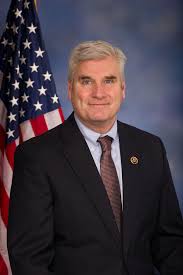
Venture exchanges are one step closer to reality in the US.
The House Financial Services Committee held its mark-up session this week.
Mark-up is when committees consider potential laws, allow for amendments, and then vote to kill or move each bill out of committee.
One of the bills which passed during the mark-up session in the House Financial Services Committee on June 7, 2018, was the bland sounding Main Street Growth Act.
The bill was brought forward by Tom Emmer, a Republican from the State of Minnesota, and the bill would legalize so-called venture exchanges, or exchanges for companies considered at the venture capital stages.
Canada, the US neighbor to the North, has already taken the lead with the TSX Venture Exchange, a venture exchange which has been fully operational in Canada since 1999.
The Main Street Growth Act passed out of the House Financial Services Committee by a vote of 56-0.
The vote might surprise some since this bill was the subject of some controversy when it as debated in a House Financial Services Committee hearing entitled “Legislative Proposals to Help Fuel Capital and Growth on Main Street.” held last month.
In that hearing, New York Democratic Representative Carolyn Maloney, criticized the proposal because it protected companies on these exchanges from state financial regulators.
One of the witnesses, Professor John Coffee from Columbia University, also expressed concerns that venture exchanges could open and operate without first receiving a rigorous Securities and Exchange (SEC) approval process.
But the bill and the other five considered with it all passed overwhelmingly.

Jeb Hensarling is a Republican from the State of Texas and he chairs the House Financial Services Committee.
He noted of all the bills: “These measures build on the regulatory relief recently passed by Congress to eliminate onerous Washington regulations that are stifling access to credit and capital. This is about creating the next Apple, the next Yahoo, the next Home Depot – it’s about where the economy of tomorrow will come from,” said Committee Chairman Jeb Hensarling (R-TX) at the beginning of the markup. “It is local community banks or credit unions that provide consumers with a checking account, a car loan, or a home mortgage; however, it is the capital markets that finance their careers, salaries, and retirement plans. That is why today, we’re considering even more pro-growth capital formation measures that will help put our economy on a path of sustained prosperity.”
Another bill, H.R. 5756, would make it easier for shareholders in publicly traded companies to submit proposals.
All the bills now head to the Congressional Budget Office (CBO) for their scoring; the CBO predicts the budgetary effect of each bill.
With most trading related bills, this process is normally a formality since they rarely have a significant effect on the budget.
From there, the bill heads to the full House of Representative before repeating a similar process in the Senate.








